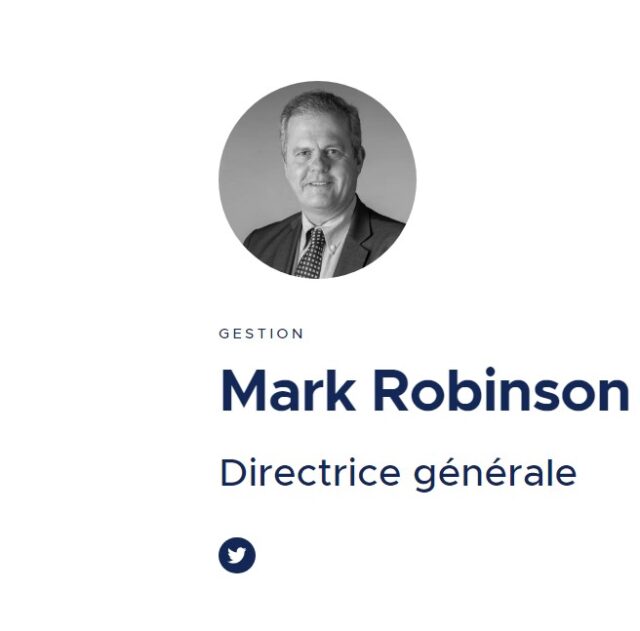In this publication, EITI Executive Director Mark ROBINSON explains why the 2023 EITI Standard is important in the era of energy transition and how it can support transparent, inclusive and sustainable progress in resource-rich countries. He said: “The EITI Standard 2023 is a transparent and inclusive way to achieve a sustainable and inclusive energy transition.
At the heart of the EITI is a global standard that aims to advance transparency and accountability in the energy and mining sector. Since the launch of the EITI Standard in 2013, the EITI reporting framework has been updated at regular intervals to meet the evolving needs of the sector and stakeholders.
The global energy landscape has changed radically since the EITI was created twenty years ago. New data from the International Energy Agency shows that investment in clean energy reached a record 1,700 billion USD last year, compared with 1,000 billion USD for fossil fuels. The COVID-19 pandemic and the Russian invasion in Ukraine have accelerated progress in the energy transition, giving new impetus to reducing dependence on oil and gas and improving the security of supply chains for critical minerals. As the renewable energy sector continues to attract investment and generate revenue streams, the need for greater transparency to ensure a sustainable transition to a green energy future becomes ever more crucial.
A major change in the EITI declaration
To ensure its relevance in a constantly evolving global context, the EITI Standard has been updated to include provisions relating to the energy transition for the first time.
These changes build on a strategic shift initiated by the EITI Board over the past four years to address the energy transition in the EITI’s work. In 2020, the EITI Board developed a clearer approach to integrating the energy transition into the EITI’s strategic priorities. It recognised that the energy transition would have a transformative impact on the extractive industries and that EITI data can inform public debate on the sector and future revenue streams, as well as identify governance risks in the face of rapidly growing demand for the raw materials needed to drive the growth of renewable energy. Many EITI implementing countries have already reported data on greenhouse gas (GHG) emissions and other aspects of the changing energy mix.
In addition, the EITI’s statutes have been revised to incorporate into the EITI’s purpose the role it plays in contributing to a responsible energy transition. The EITI’s constituency of companies has also been expanded to include energy companies, reflecting the diversification of investment portfolios to include renewable energy, as well as the adoption of “net zero emissions” targets.
New provisions on energy transition
The global transition to a low-carbon economy is having an impact on the entire value chain of the extractive sector, from how licences are allocated to how public revenues will be affected. It redefines the types of data, disclosure and dialogue needed to encourage accountability and good governance in the natural resources sector.
For the first time, the EITI Standard encourages companies to disclose their GHG emissions in accordance with leading disclosure standards, recognising the EITI’s role in promoting transparency and public debate on energy transition information and the implications this has for EITI reporting.
The EITI 2023 Standard also supports disclosure and public debate on the impacts of the energy transition on the extractive sector and national economies. Governments will be required to document their commitments, policies and plans for the energy transition, including disclosure of public subsidies, capital and operating expenditures, carbon pricing mechanisms, carbon taxes and subsidies.
EITI implementing countries will also be required to document the rationale for fast-tracking extractive licences, with a view to mitigating the risk of fraudulent deals in the face of growing demand for critical minerals. In addition, countries are encouraged to disclose data on proven oil, gas and mining deposits, together with the required information on significant exploration activities.
The energy transition will have an impact on government revenues from both fossil fuels and minerals, particularly those needed for renewable energy technologies. Under the EITI Standard 2023, governments will be required to disclose their fossil fuel and mineral revenue forecasts, and the assumptions on which these forecasts are based. Companies are expected to disclose information on future production plans when requested to do so by the Multi-Stakeholder Group.
Transparency in transition
Ultimately, EITI 2023 disclosures will help citizens understand whether their country is ready to manage the energy transition. This information will enable a public debate on the sustainability of public revenues, which is at the heart of the EITI statement. By facilitating transparency and open dialogue, the EITI 2023 Standard can help pave the way for a fair, sustainable and inclusive energy transition, ensuring a future where everyone can benefit from the transition to a low-carbon world.
By Mark Robinson (6 June 2023): https://eiti.org/
#Mines_Actu_Burkina






